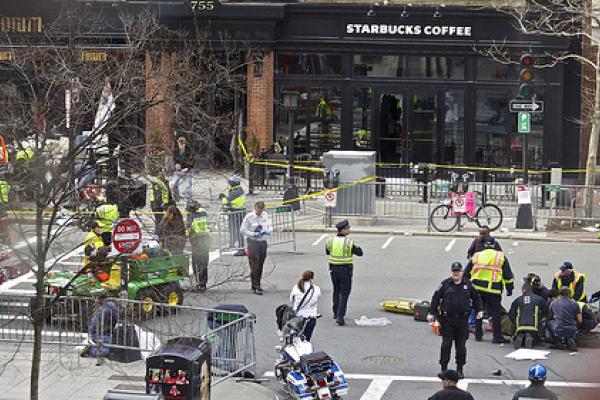Apr 17, 2013
Resurrection is the theme of the 50 days of Eastertide. Yet, for decades, the month of April has been filled with particularly horrific deaths:
- The assassination of Martin Luther King, Jr. (April 4, 1968)
- The murder of 13 persons at the American Civic Association Immigration Center in Binghamton, N.Y. (April 3, 2009)
- The shooting death of 32 students at Virginia Tech. (April 16, 2007)
- The end of the Waco siege and the death of 82 members of the Branch Davidians. (April 19, 1993)
- The bombing of the Alfred P. Murrah Federal Building in Oklahoma City that killed one hundred sixty-eight children and adults. (April 19, 1995)
- The Columbine High School shooting resulting in deaths of 15 persons (April 20, 1999), a shooting that has been echoed in 31 schools since, most recently in Sandy Hook Elementary School of Newtown, Conn.
In 2013, April continues its trend. On Monday, April 15, someone decided to plant bombs along the route of the Boston Marathon. The explosions killed at least three people and wounded more than 100. Among the dead is 8-year-old Martin Richard.
Read the Full Article

Already a subscriber? Login
